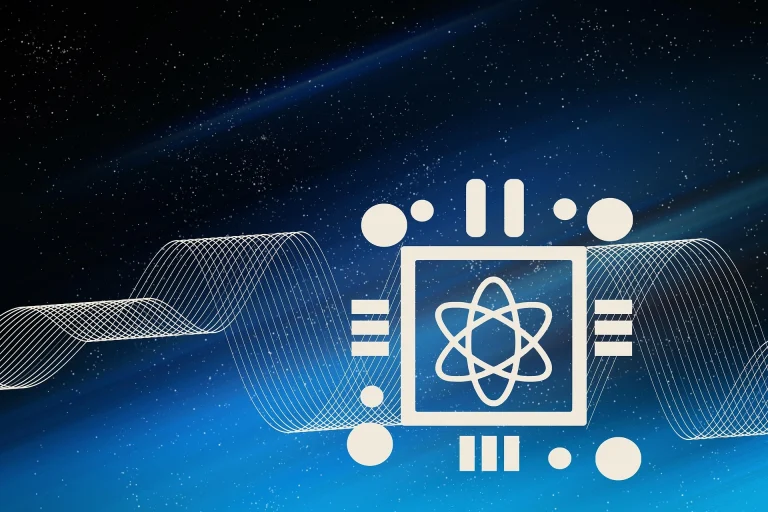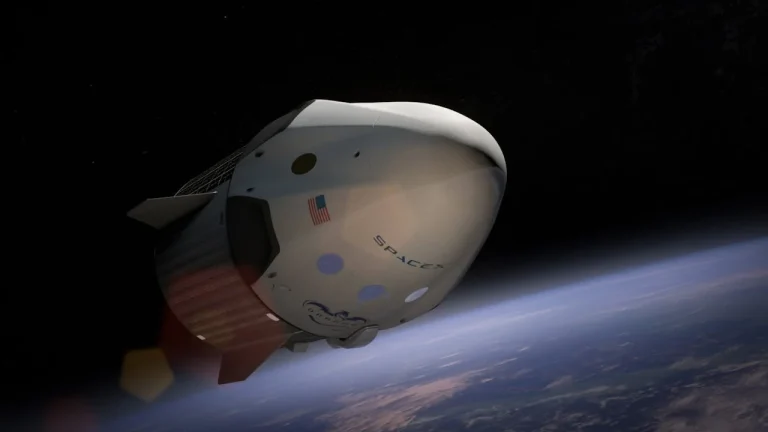
artificial intelligence
The Dawn of AI-Driven Entertainment
By altering how content producers, distributors, and consumers create and consume material, artificial intelligence is reshaping the entertainment sector. It now actively participates in creative production, creating original music and realistic animations, rather than only managing backend operations. AI algorithms create symphonies in music by combining various styles.
Generating individualized soundscapes depending on listener preferences. Movie AI-powered tools enhance visual effects, accelerate scriptwriting, and even generate extremely realistic digital characters. Beyond production, artificial intelligence improves user experiences by letting streaming services’ recommendation engines ensure that viewers get content tailored to their tastes.
This technology constantly challenges established creative conventions and provides artists fresh opportunities as it progresses. Combining artificial intelligence‘s computational capability with human ingenuity yields ground-breaking inventions that transform traditional storytelling and generate interesting, interactive experiences. In the entertainment sector, AI-driven creativity is bringing in a new era.
1. AI in Music Production: Crafting Melodies and Harmonies
By generating melodies and harmonies with great speed, artificial intelligence artificial intelligence is reshaping the music production process. Sophisticated AI algorithms used by companies such as AIVA and Amper Music can generate entire works ranging from energizing background music to soothing symphonies. By examining vast databases of musical patterns and grasping the subtleties of rhythm, melody, and harmony, these artificial intelligence (AI) systems produce interesting and emotionally powerful music.
These tools let musicians and producers quickly mix several styles, try out fresh genres, and design unique soundscapes. Whether an artist wants an electronic beat or a classical symphonic piece, artificial intelligence can generate outstanding music in a few minutes. Besides being fast, AI-generated music boasts great sound quality that presents unlimited artistic possibilities. Acting as both a creative partner and a production tool, AI allows musicians to explore, create, and focus on their artistic vision while technology handles the technical aspects of music composition.
How AI is Changing Hollywood: An Understanding of a New Era of AI in Entertainment
2. Virtual Performers: AI-Generated Pop Stars and Digital Influencers
By producing virtual artists who captivate viewers all around, artificial intelligence is changing the business of entertainment. These AI-powered virtual beings possess unique personalities that deftly blend creative arrogance with human-like interactions through clever algorithms. Notable instances are Lil Miquela, a millions-follow digital influencer on social media, and Apoki, a K-Pop AI artist who enthrals listeners with emotional shows.
Apart from being amusement, these virtual characters are excellent marketing instruments. Brands are increasingly collaborating with influencers to market goods given their significant online followings and consistent presence. Unlike human influencers, these artificial intelligence (AI) systems can keep a flawless image, operate around the clock, and rapidly adapt to shifting fads.
These partnerships illustrate how artificial intelligence could generate long-term employment in entertainment by allowing companies and artists to play with innovative storytelling methods. The growing complexity of virtual performers is upsetting established ideas of stardom and altering audience interaction with digital characters.
3. Scriptwriting and Storytelling: AI as a Creative Partner
Artificial intelligence is reshaping narrative and scriptwriting and quickly becoming a vital creative partner for directors. Advanced artificial intelligence-powered writing tools offering dialogue, scripts, and plot ideas can help to speed the creative process. For instance, ScriptBook analyzes large data sets of audience preferences and offers predictions grounded in insights to help predict box office results.
Writers are empowered rather than displaced when they use AI-generated suggestions to enhance character development, simplify plot flow, and guarantee audience engagement. This cooperation between human invention and machine intelligence helps storytellers to quickly and easily investigate several storylines. By automating menial chores, artificial intelligence enables writers to focus on inventiveness, exploring unusual narratives and interesting character connections.
Artificial intelligence is reshaping serves as a support rather than as a takeover. while it may offer fresh ideas and points of view, it cannot completely grasp the sophistication of human emotion and cultural subtleties. This collaborative approach improves storytelling by making it faster, more vivid, and more aesthetically varied without compromising human creativity.
4. Personalized Viewing: AI-Driven Content Recommendations
Streaming services like Netflix, Spotify, and YouTube use sophisticated artificial intelligence to generate very personalized content suggestions. These sites employ sophisticated algorithms that rigorously analyze user behavior, including searching patterns, listening preferences, viewing histories, and interaction data. This enormous amount of data may be analyzed by artificial intelligence to forecast user. Preferences, generate personalized playlists, recommend films, and even provide lists of specifically curated content.
Using this approach, passive viewing becomes a participatory experience in which the platform interface is designed for every single user. Personalized recommendations not only raise user satisfaction but also significantly boost platform engagement as they draw users to spend more time examining carefully selected choices. AI-driven personalization helps creators guarantee that a range of content reaches its intended audience by bridging the gap between content creators and consumers.
Furthermore, it helps streaming services to retain their competitiveness by means of improved recommendation engines reacting to real-time input and current trends. In this swiftly altering digital world, personalized artificial intelligence recommendations are becoming more and more ubiquitous.
5. AI in Animation and Visual Effects: Realism Reimagined
AI is revolutionizing animation and visual effects (VFX), enabling digital storytelling to have an unmatched degree of realism. DeepMotion is among the advanced AI-powered technologies that create extremely realistic character motions to guarantee that digital numbers have natural, human-like fluidity. By significantly accelerating complex animation processes using machine learning methods, these solutions reduce production time and costs without degrading quality.
Studios are leveraging artificial intelligence in visual effects to produce immersive environments and extremely realistic scenes that were once unreachable by gua manual methods. Deep learning algorithms enhance this realism by animating facial expressions with great accuracy, therefore capturing tiny emotions and little aspects that make digital characters relatable.
Thanks to this technology, creators can now produce extremely realistic visual stories for movies, video games, and virtual reality encounters. By combining creativity with machine intelligence, artificial intelligence is challenging the boundaries of what is visually possible, transforming how stories are presented and experienced in the digital age.
6. Video Game Development: Immersive AI-Driven Experiences
Artificial intelligence (AI) is transforming video game development by generating experiences centered on the players that are very engaging. Gaming companies are progressively using artificial intelligence to build interactive, changing environments that adjust in real time to player actions and choices. One of the most obvious advances is procedural content generation, whereby game worlds are continuously changed in reaction to player actions.
Apart from maintaining the plot interesting, this offers several exploration possibilities. NPCs with artificial intelligence skills further enhance immersion by responding like people and adapting from player behaviors. These adaptable NPCs evolve from being fixed characters to dynamic ones with unique behavioral patterns, powerful foes, strategic friends, or multi-faceted nature.
Moreover, AI-driven adaptive storytelling tailors game narratives such that player choices and actions match plotlines. This tailored storytelling technique helps players to co-author their own path, therefore strengthening emotional tie. These developments are changing gaming and making every replay an uniquely personal experience.
7. Real-Time Concerts and Virtual Reality (VR) Experiences
AI is changing live entertainment by bringing iconic performances back to life. Using sophisticated artificial intelligence techniques to recreate classic performances, audiences can enjoy magical musical moments. Combined with Virtual Reality (VR), Artificial intelligence is reshaping these events into interactive, immersive experiences accessible from anywhere in the globe.
Former artists can reenter the stage and deliver enthralling, realistic presentations using AI-powered holograms and real-time motion capturing technology. Fans can experience legendary shows without being limited by geography or logistical problems, therefore making them more readily available than ever.
This inventive approach allows fans to experience front-row seats from the comfort of their homes, therefore democratizing live entertainment. Furthermore, better fan engagement enables artists and event organizers to target more audiences free from the constraints of traditional locations. As AI and VR evolve further, the future of live entertainment offers ever more customized, interactive, and unforgettable experiences.
8. Ethics and Challenges: The Human Element in AI Creativity
As it changes the creative industries, artificial intelligence presents significant ethical dilemmas. The ability of AI-generated content to accurately capture human emotion and cultural peculiarities, which are frequently essential to the arts, urgently concerns many. The discussion over AI’s place in artistic expression brings to light concerns of authenticity and ownership.
Particularly when creators heavily rely on AI to produce their creations. Can we nevertheless consider something produced by an algorithm to be “genuine”? An increasing number of people in the creative and entertainment industries are looking at hybrid models fusing human creativity with artificial intelligence tools.
By leveraging the strengths of each party, these collaborations aim to enhance artistic expression and maintain a human element. The challenging task, though, is to strike a fair balance between embracing modern innovations and preserving the traditional components of creativity that have shaped the industry for centuries.
9. The Future of Entertainment: Co-Creation and Collaboration
Human-AI collaboration will mold the entertainment business of the future. AI would be a powerful tool to increase creativity rather than replace artists. AI’s role would transform from a mere assistant to that of a creative partner, helping artists find new potential as it becomes increasingly perceptive. To enable this transition, creators must embrace AI to enhance their abilities rather than replace their natural talents.
Educators must train future artists in AI literacy to help them maximize the use of AI and thrive in this new world. The continuous convergence of human creativity and technology will enable new and previously unimaginable types of art. Ultimately, humans and robots will unite to enhance audience engagement and transform the methods by which creators produce. Audiences consume, and individuals share entertainment globally.
Conclusion: Embracing the AI-Driven Creative Renaissance
AI is transforming creative work in industries, uniting innovation with tradition, and revolutionizing the entertainment sector. Artificial intelligence is reshaping artistic work worldwide, from composing music to bringing characters to life. Human touch remains essential in directing AI towards authentic, meaningful innovation despite its might.
AI will collaborate with artists instead of competing with them as the entertainment industry evolves. Allowing them to innovate and find new frontiers. Human creativity and machine brainpower can be utilized to forge a vibrant entertainment future. Where technology and imagination work together to open up new unimagined avenues for artistic creativity and storytelling.
I’m a passionate blogger with a degree in APD Computer Science, blending technical expertise with a love for sharing knowledge. Through my blog, I explore the intersections of technology, creativity, and practical insights, offering readers valuable perspectives on topics that matter. Whether it’s diving into the latest tech trends, sharing productivity hacks, or simplifying complex concepts, my goal is to inspire and inform with every post.












